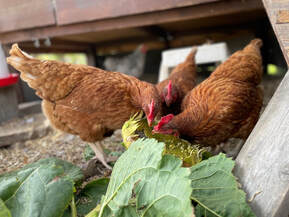 Thinking about spring already? We are too! Join us for Chickens 101. We will talk about coop design and requirements, feeding and general care, winter needs and concerns, breed selection and buying hens, predator and vermin prevention, waste management, disease recognition and control, and end of life options. Bring your questions! This class is offered via Zoom, April 14, 2024. Registration is available though our Classes and Events tab.
0 Comments
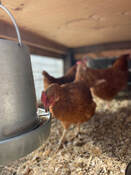 Looking for a great introduction to urban hen-keeping? Missed our June class? Join River City Chickens for "Chickens 101" on September 17, 2023 via Zoom. Instructors will discuss many useful topics, including coop and run design and requirements, feeding and general care, winter needs and concerns, breed selection and buying tips, predator and vermin prevention, waste management, disease recognition and control, end of life options, and biosecurity. Registration is available here.
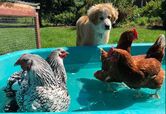 Thinking of warmer weather, anyone? We are looking forward to hosting Chickens 101 on April 24 and May 29, 2022 via Zoom. Chickens 101 is an informative online course for urban hen owners. Access to a device with internet connection, video and audio outputs is required for the course. Registration and more information is available here. 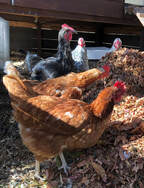 We've got a long, cold winter ahead of us, but we take comfort in setting a date for our next Chickens 101: February 27, 2022. It's not quite spring, but close enough! Chickens 101 topics include coop design and requirements; feeding and general care; winter needs and concerns; breed selection, buying hens, and flock introductions; predator and vermin prevention; waste management; disease recognition and control; end of life options; and biosecurity. Registration is available through Eventbrite at this link.
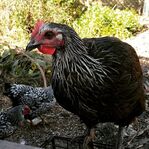 With this recent cold spell, we are thinking of spring and looking forward to hosting Chickens 101 via Zoom on March 28, 2021. Registration is available at this link. We hope you can join us! 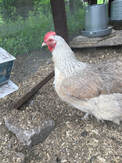 Enjoyed Chickens 101, and interested in learning more? Chickens 201 builds on topics covered in Chickens 101, taking an in-depth look at urban coop design, husbandry and handling of hens, and general health care, including wing, nail, and beak care. Please note, this class is neither required, nor approved, to obtain a hen licence for the cities of Edmonton, St. Albert, Ardrie, or Leduc, and no certificate of attendance will be provided. Stay tuned for another Chickens 101 in the fall! 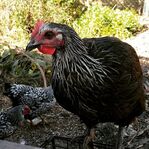 We are looking forward to holding Chickens 101 classes this spring and summer. To accommodate the need for physical distancing, our next courses will be held via Zoom. Access to a device with internet connection, video, and audio outputs is required. Digital links will be provided before class. Registration is available at this link. 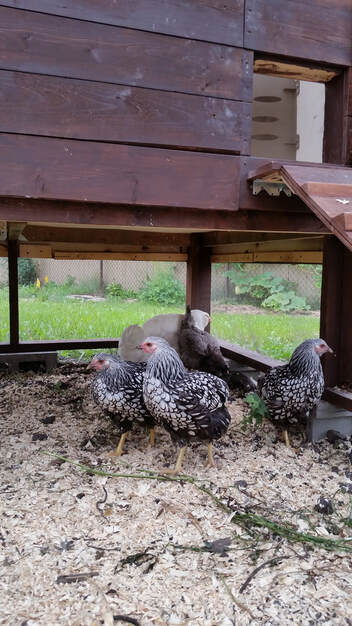 We are excited to host another Chickens 101 this spring, March 15, 2020 at 1:30 p.m. at the Edmonton Valley Zoo. Registration is available at this link. We are excited to teach as well at the University of Alberta Botanic Gardens on March 31, 2020 at 6:30 p.m.. Registration is available through their website. Join us to learn about coops design and requirements, feeding and general care, winter needs and concerns, breed selection and buying hens, predator and vermin prevention, waste management, disease recognition and control, and end of life options. We've really enjoyed hosting four Chickens 101 classes already this year, and we are looking forward to hosting a fall class. This year we are especially excited to be holding a class at the Edmonton EXPO Centre during FarmFair International. Registration for Chickens 101 is available at this link. Ticket price includes same day admission to Farmfair International.
According to this article the City of Edmonton is considering raising the cap on urban hens. Interested in learning more about how to raise backyard hens? We are excited to be hosting another Chickens 101 on May 21, 2019 at the Edmonton Valley Zoo.
Tickets are available at this link. 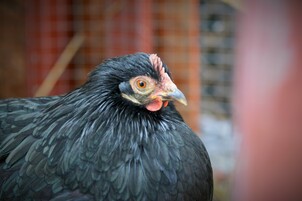 Join us March 14, 2019 from 6:30 to 8:00 p.m. In Chickens 101, you will learn about by-law requirements, coop design and breed selection. Get an introduction to chicken health and feeding, as well as biosecurity and winter care. Experts from River City Chickens will share many other tips and resources for keeping hens in the Edmonton region. This course is hosted by the University of Alberta Botanic Gardens. Registration is available at this link. Interested in learning more about backyard chickens? Want to see an urban coop in action? Our fall classes are listed under our Classes and Events tab.
 Our Chickens 101 course at the John Janzen Nature Centre is sold out, but we are excited to be teaching a class through Metro Continuing Education on May 8, 2018 with a coop tour for registered participants on May 12, 2018. Registration for this class is available through Metro at this link. 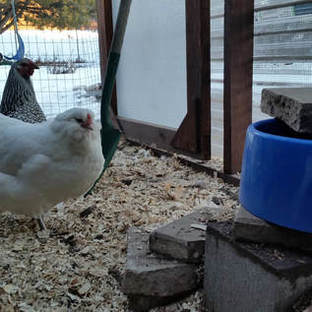 We are pleased to be able to offer a Chickens 101 course at the John Janzen Nature Centre, on Sunday, April 8, 2018 from 1:00 PM – 3:30 PM. Further details and registration are available at this link. Topics covered include: • Municipal, Provincial and Federal regulations • Coop design and requirements • Feeding and care • Winter concerns and care • Breed selection, buying hens, and flock introductions • Predator and vermin prevention • Waste management • Biosecurity • Disease recognition and control • End of life options Our instructors are pleased to be teaching a course through Metro Continuing Education, Chickens and the City:
Urban hen keeping demystified! Instructors with River City Chickens will walk you through the essentials of keeping hens in an urban setting. Topics include coop design and requirements, climate challenges and solutions, tips for selecting birds, health and welfare, among others. The course will include both a class component and a coop tour that will give you a chance to experience what urban hen keeping is all about. The course is set to take place on March 13, 2018, with a coop tour for registered participants on March 17, 2018. Registration is available through Metro. 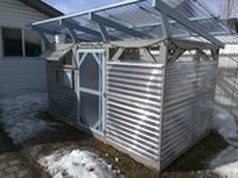 Here in Edmonton, it can get very cold. However, hens can cope admirably with our weather if their owners take proper precautions. Let's have a look at some common recommendations. Remember to do your own research, and have a plan in advance of really cold weather. And importantly, even when it's cold outside, keep visiting your hens regularly to see how they are behaving. Hens should display their natural behaviours even in cold weather. If they are huddling together or otherwise looking unhappy, that is a sign something is amiss. 1. Start with a cold-hardy breed. Some breeds of chickens do better in the cold than others, and it is really important to take this into consideration. Cold-hardy breeds are generally sturdier and well feathered, with small combs and wattles. There are a number of breeds to choose from, including a breed, the Chantecler, that is considered to have been developed for Canada's climate. A cold-hardy breed in a properly designed coop (read on!) can be very happy, even in an Edmonton winter. 2. Weatherproof your coop and run. There are solid arguments in favour of insulating backyard coops in our climate. There are many options for insulation, but whatever you choose, take care to make it inaccessible to the chickens as they will peck at any exposed areas. Another aspect of weatherproofing is keeping the run dry. The run should be roofed and protected from blowing snow. Some people choose to use clear plastic to wrap their runs; others use tarps, plywood, or clear solid plastic. Consider your individual circumstances, and do a bit of research to see what will work best to keep your hens happy. Do your best to avoid drafts in the run, while ensuring adequate ventilation (more on this below). Other recommendations include providing a wider roost, such as a 2x4 with rounded edges, so that the chickens extend their feet underneath them at night, warming them with their bellies. 3. Ensure the coop is draft-free and well ventilated. Proper coop ventilation is critically important in the winter. Drafts, or air blowing across or around chickens, take away the natural protection of their feathers. However, humidity in the coop drastically increases the risk of frost bite. To adequately balance these considerations, design your coop so that in winter air ventilates upwards, and not across the hens. While windows are helpful in the summer, in winter you will need a different form of predator-proof ventilation near the top of the coop, to allow humidity to escape without disturbing the hens. In the example shown above, the window can be closed in the coldest weather; however, the coop contains predator-proof vents in the ceiling underneath the plastic roof, which ensures draft-free ventilation. Remember during the winter to keep bedding dry and watch for signs of moisture. Any visible moisture build up is a sign that your coop does not have enough ventilation. 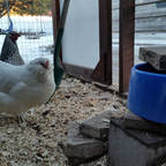 4. Provide access to clean, fresh water at all times. Chickens drink a lot of water, and they need constant access to fresh water. Even in our coldest weather, there are a number of options for ensuring your hens have water. As shown in the image, some people use a heated pet bowl, elevated and partially covered to keep bedding (and clumsy chickens) from falling in. There are also specialized chicken water dishes available locally and online. Some owners have had success in designing their own. Do your research and have a plan before it gets cold! Consider keeping water in the run, rather than in the coop, to reduce humidity, and to keep the hens active. 5. Provide plenty of nourishing food. Chickens need to eat more in winter to keep themselves warm. Make sure their food is readily available, and consider supplementation with a little extra "scratch" in the evenings. Do not overdo this, however, as chickens can become unhealthy; this is another area to research. 6. Ensure the chickens have enough room to move about, and activities to keep them busy. Making sure your run is comfortable will go a long way towards ensuring your hens are happy in the winter. Keep lots of dry bedding, so the chickens have a relatively warm place to scratch and move about. Add a dust bath and different areas for the chickens to stand and take in the world. Look into different ways to keep them entertained; there are plenty of great ideas online. Watch their behaviour - do they seem happy? If not, take stock of the conditions in your coop and consider what needs to be improved. 7. Consider light and heat, with caution. This is a topic for you to consider very carefully. Chickens need over 12 hours of light to produce eggs, but some people prefer to let them take the natural winter break from egg production, and therefore do not add additional, or much, lighting. With respect to heat, some owners feel that chickens can become dependent on a heat source and will experience stress if it is suddenly removed or if the power goes out. In a dry, draft-free environment with adequate food and water, cold-hardy breeds can adjust very well to colder weather. However, to help their hens stay comfortable through the coldest periods, owners may choose to add a safe heat source. Research carefully in advance of cold weather, and be very cautious. Electricity can be a fire hazard, in coops as elsewhere, and there is potential for burns from heat sources that are too hot or too close to the chickens. Heat lamps are often cautioned against, so some people use low-wattage infrared bulbs or flat panel heaters. Whatever you choose, don't forget to monitor conditions in the coop. If something isn't working for your hens, re-evaluate and adjust your set up. We hope these ideas will give you a starting point for your own research. Happy winter! |
Archives
January 2024
Categories
|
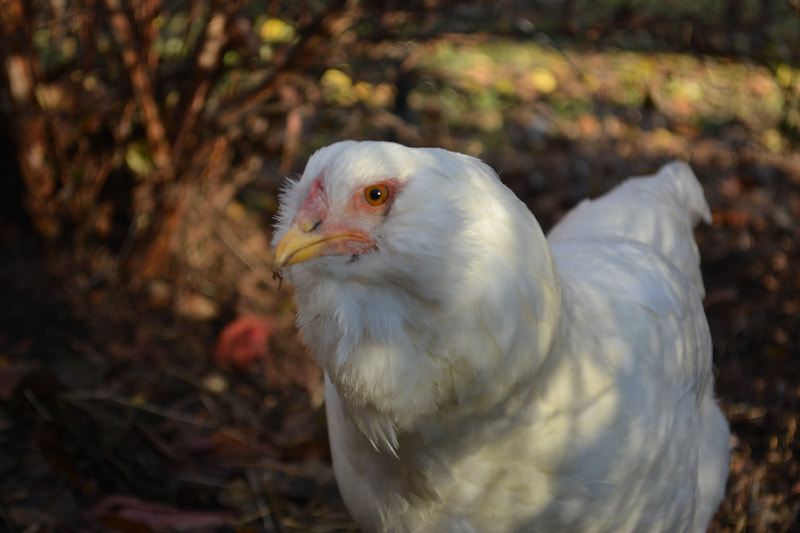
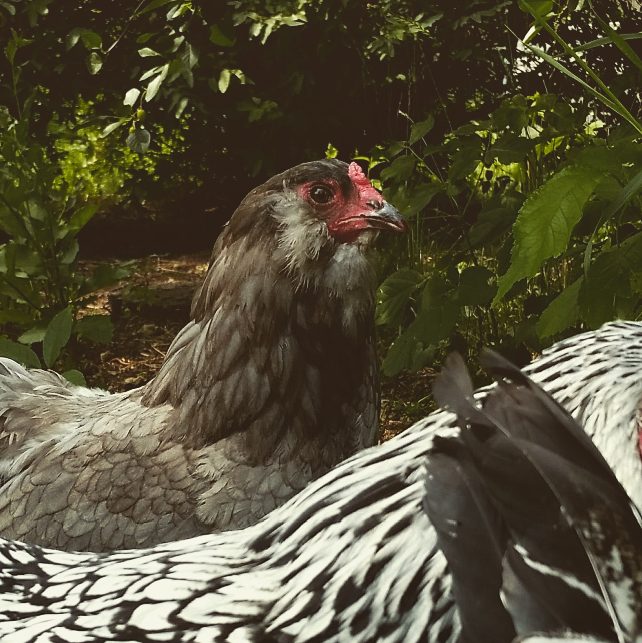
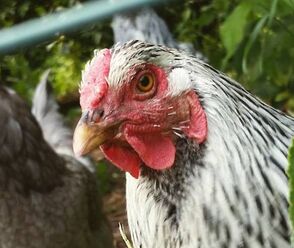
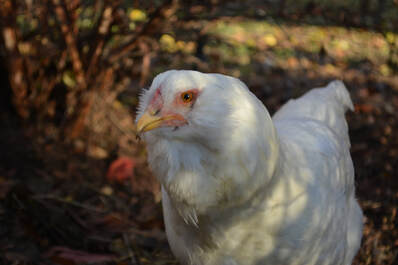
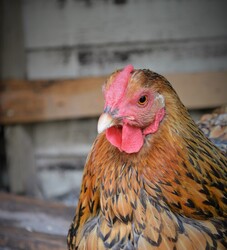
 RSS Feed
RSS Feed